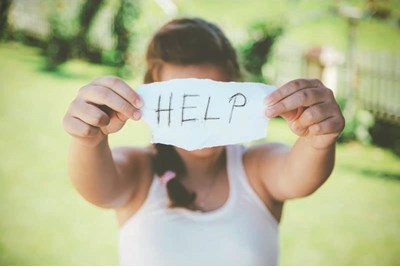Celebrating Our New Lead Schools for Music Education in Cheshire West and Wirral
On Thursday, 26th June, Edsential proudly welcomed six schools from...30 Jun 2025

When a young person opens up about a mental health issue, responding in the right way is crucial. Caroline Hounsell from MHFA England offers five tips for school staff
Let’s start with the statistics. One in 10 young people experience a mental health issue at any one time. For those aged five to 19 suicide is the second most common cause of death, and a record number of children experiencing suicidal thoughts contacted Childline in 2016/17 (Public Health England, 2017).
In an average group of 30 young people aged 15, 10 are likely to have seen their parents separate, seven are likely to have been bullied, six may be self-harming, and one could have experienced the death of a parent (Public Health England).
Record levels of young people are struggling. Academic pressure, social media, bullying, poverty, and lacking professional mental health support are all thought to contribute to this epidemic of poor mental health. It is clear that young people are not getting the support they need.
However, the key figures in a young person’s life, such as teachers, tutors, and school staff, are often best-placed to first spot when a young person is struggling – the school community is in an empowered position to make a difference.
With research showing that 50 per cent of mental health issues are established by the age of 14 (Kessler, 2005), and with 96 per cent of teachers believing they have encountered a pupil experiencing a mental health issue (NASUWT, 2018), it is key that teachers feel equipped to have conversations with students about their mental health.
World Mental Health Day took place yesterday (Wednesday, October 10). To start schools on this journey, Mental Health First Aid (MHFA) England has created the #HandsUp4HealthyMinds toolkit, offering a new set of resources to help schools, teachers and parents to support young people with their mental health – helping them grow up happy, healthy and resilient in a changing world.
In response to these recent numbers, MHFA England urges more schools to act now to take a proactive step towards supporting young people with their mental health.
Below are five tips for talking to students about their mental health.
When it comes to starting a sensitive conversation with a student, it is really important to consider the time and place where the conversation is going to happen. First off, you need to make sure you have plenty of time to commit to the conversation. It is not something to quickly broach between classes – instead choose a moment when you have plenty of time and don’t need to rush off somewhere. It is also best to choose a location that’s neutral ground, such as a quiet room or pastoral room, so it feels removed from a classroom situation.
First, if relevant, make it clear to the student straight away that they are not in trouble. Then take a seat, even if they are not sitting down – this can instantly make you seem less intimidating. When speaking, be empathetic, think about your body language and take them seriously. Also make sure to consider any cultural differences when they are communicating – for instance, understanding how much eye-contact is appropriate.
Questions such as “how long have you felt like this?”, “how can I help you?”, “what kind of support do you think might help you?” and “how are you feeling at the moment?” will help you scope-out the student’s situation and get a better understanding of what they are going through and how you can best support them.
Try and refrain from making judgements and aim to keep the conversation positive. Get on their wavelength – put yourself in their shoes and try and demonstrate to them that you hear and understand what they are saying and thinking. Make sure you refrain from giving glib advice such as “cheer up” and “pull yourself together” as that may come across as dismissive.
In the days, weeks and months following your conversation, make sure you check in and reassure them that you remember what they said and that you are there for them. Let them know that there are sources of support available – this might be through school counselling services, parents, their GP or online information. If it is appropriate, you can also offer to go with them to seek that support.
Taken from: http://www.sec-ed.co.uk/best-practice/mental-health-when-a-young-person-opens-up-to-you/